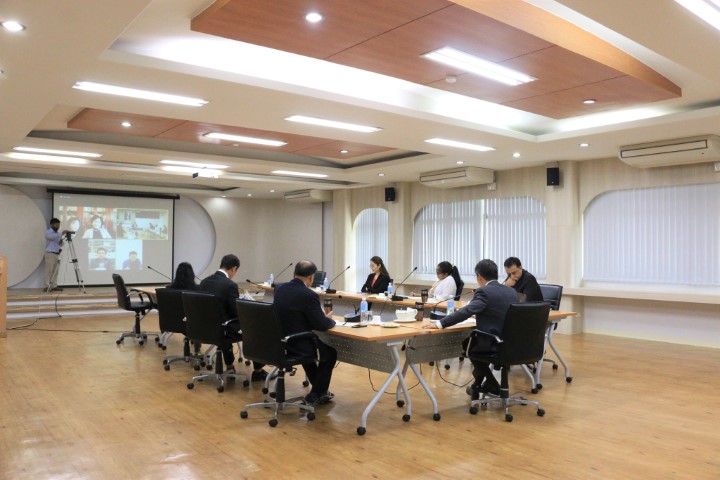After the virtual memorandum of understanding signing on June 30, 2020, senior representatives of Mekong Institute (MI), the Belt and Road Research Institute for International Cooperation and Development (BRRI), and the Shenzhen Foundation for International Exchange and Cooperation (SFIEC) explored areas of collaboration to advance Lancang-Mekong regional cooperation on July 14, 2020 via Zoom application.
“This partnership is an opportunity for us to materialize our commitment in strengthening special economic zones (SEZs) in Lancang-Mekong countries,” Dr. Watcharas Leelawath, MI Executive Director, said during the opening session. He also stated that the tripartite collaboration will help boost investments and promote socioeconomic integration in the region.
Drawing on each organization’s expertise, the partners discussed the roll out of field missions, information exchanges, and research studies for Cambodia, P.R. China, Lao PDR, Myanmar, Vietnam, and Thailand nationals to broaden their understanding of the merits of cooperation mechanisms.
Professor Tao Yitao, Executive Dean of BRRI, expressed goodwill for the planned activities, “we hope to share China’s experiences in SEZ development to members of Lancang-Mekong countries as part of our contribution in deepening regional cooperation.”
Recognized as one of the leading think tanks in China, BRRI holds a long track record in the promotion of SEZ development and management through knowledge exchange dialogues. Specifically, BRRI highlights China’s policies, innovations, and other best practices that attract foreign investments and spur economic growth.
Mr. Cao Cong, Secretary General of SFIEC, stated that the convergence with MI and BRRI will result to the delivery of tailored study visits on SEZ promotion. He added that “we are pleased to work with a professional institution such as MI who has the foundation to help us better integrate Shenzhen’s best practices in SEZ management into a program to the benefit of the Lancang-Mekong region.”
SFIEC is a non-profit organization that has established a platform for international exchanges and cooperation. To date, it has facilitated over 280 international exchanges across 26 countries to promote trade and commerce, science and technology, education, culture, art, environmental protection, and sister city relation management.
This is MI’s sixth formal partnership in 2020. The growing list of associations is part of MI’s mission to further regional integration and cooperation among Lancang-Mekong countries in the areas of trade and investment facilitation, agricultural development and commercialization, and information technology and connectivity.








